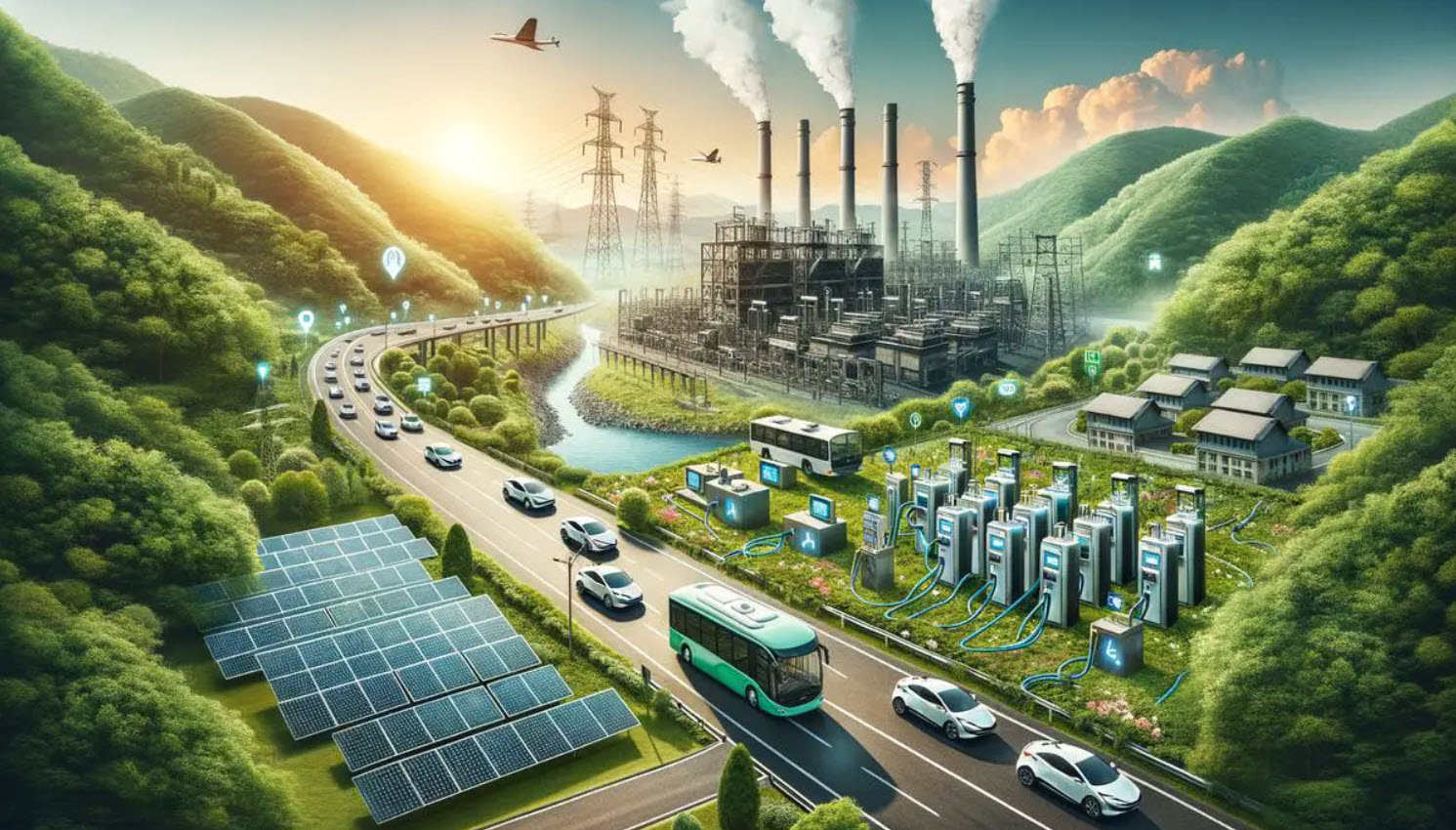
Is Hydrogen a Smart Investment?
April 4, 2024Hydrogen is gaining attention as a potential future energy source, offering a cleaner alternative to traditional fuels and playing a role in moving towards a more sustainable energy future. Its potential to reduce carbon emissions and versatility across various sectors makes it an area of interest for development and investment. With growing support from governments and industries worldwide, hydrogen is part of the efforts to achieve a low-carbon economy.
The Basics of Hydrogen as an Energy Source
The appeal of hydrogen as a future energy source lies in its abundance and the various ways it can be utilized, contributing to a greener, more sustainable energy landscape. Hydrogen offers a reduction in carbon emissions, particularly when produced through green methods that use water electrolysis powered by renewable energy.1 This eco-friendly aspect positions hydrogen as a player in the transition towards a low-carbon future, important for combating climate change and reducing our reliance on polluting energy sources.
Hydrogen’s versatility extends beyond just being a potential fuel for vehicles; it offers solutions for various hard-to-decarbonize sectors including:
- Industrial processes
- Power generation
- Long-haul transport systems
Hydrogen fuel cells enable this energy carrier to power not only cars but also support larger-scale applications such as ships and airplanes, indicating a broad potential impact across multiple aspects of global energy consumption.2 Growing governmental support and investment in hydrogen technology further emphasize its role in achieving net-zero emission goals, marking hydrogen’s potential not just as an energy source but as a component of future sustainable development.
Current Hydrogen Energy Market Landscape
As the hydrogen market expands globally, countries are rapidly laying the groundwork for its inclusion as a central component of their energy strategies, indicating a shift towards cleaner and sustainable energy sources. Major economies like the European Union, China, and Japan are pioneering substantial investments and policies to accelerate the development and deployment of hydrogen technologies.
The European Union’s hydrogen strategy aims to install at least 40 gigawatts of renewable hydrogen electrolysers by 2030, showcasing an approach to achieving energy transition and sustainable economic growth.3 China’s latest five-year plan underlines hydrogen’s critical role in its future energy matrix, with considerable state-backed programs designed to enhance production capabilities and infrastructure.
International collaborations and partnerships are surfacing, aimed at overcoming technical barriers and reducing costs, which are essential steps for the hydrogen market’s maturation. Initiatives such as the Hydrogen Council, representing a global consortium of energy, transport, and industry companies, are instrumental in advocating for hydrogen’s integration into the global energy system. These efforts highlight an increasingly coherent strategy towards developing a hydrogen economy that prioritizes environmental sustainability alongside energy reliability and economic vitality. This alignment among nations and industries marks a significant moment in the hydrogen market’s evolution, potentially setting the stage for hydrogen to play an important role in the global energy landscape.

Investment Opportunities and Risks in Hydrogen
Investment in hydrogen is gaining traction, driven by its potential to transform the energy sector. As countries worldwide strive to meet climate goals, hydrogen emerges as a sustainable solution, providing a cleaner alternative to traditional energy sources. This shift is supported by governmental policies and incentives aimed at promoting clean energy technologies, including funding for hydrogen projects.4 These moves signal a foundation for the hydrogen market’s growth, making investments in this space increasingly attractive. The financial backing underscores confidence in hydrogen’s role in achieving a sustainable energy future, encouraging investors to consider hydrogen stocks and related technologies as components of their portfolios.
The adoption of hydrogen technology, however, is not without challenges. The costs associated with production, storage, and transportation of hydrogen currently surpass those of conventional energy sources, posing a barrier to widespread adoption.5 Despite these hurdles, advancements in technology promise to lower these costs and improve efficiency, enhancing hydrogen’s competitiveness in the energy market. The collaborative efforts among nations to scale up infrastructure and streamline regulations further foster an optimistic outlook for hydrogen investments. Given the role of hydrogen in transitioning to a less carbon-intensive future, coupled with ongoing technological innovations and policy support, hydrogen investment presents an opportunity for those seeking to align their investment strategies with global sustainability objectives.

As we stand at a potential turning point in energy, hydrogen represents an alternative fuel with the potential for a more sustainable future. The efforts by nations, industries, and investors are laying the foundation for its wider adoption. With its potential to transform our energy systems while mitigating climate change impacts, hydrogen’s role in the pursuit of sustainability is promising. Embracing this opportunity will require overcoming current challenges, but doing so could lead us towards a greener global energy landscape.
- Dincer I, Acar C. Review and evaluation of hydrogen production methods for better sustainability. Int J Hydrogen Energy. 2015;40(34):11094-11111.
- Brandon NP, Kurban Z. Clean energy and the hydrogen economy. Philos Trans A Math Phys Eng Sci. 2017;375(2098):20160400.
- European Commission. A hydrogen strategy for a climate-neutral Europe. Brussels: European Commission; 2020.
- Staffell I, Scamman D, Velazquez Abad A, et al. The role of hydrogen and fuel cells in the global energy system. Energy Environ Sci. 2019;12(2):463-491.
- Zhang F, Zhao P, Niu M, Maddy J. The survey of key technologies in hydrogen energy storage. Int J Hydrogen Energy. 2016;41(33):14535-14552.
Ready to test your knowledge on the most abundant element in the universe? Take our fun and engaging Hydrogen Quiz now! [forminator_quiz id=”58712″]




 With over 15 years of reporting hydrogen news, we are your premier source for the latest updates and insights in hydrogen and renewable energy.
With over 15 years of reporting hydrogen news, we are your premier source for the latest updates and insights in hydrogen and renewable energy.